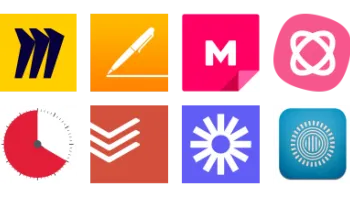Take a look inside 5 images
Studious
Pros: Ability to set devices to automatically go silent or vibrate during class time is a very helpful feature.
Cons: Homework assignments can't be marked as completed, but automatically appear as completed after the due date passes.
Bottom Line: Much of what the tool does is done better with other apps, but the auto-silence feature alone is worth the free download.
Other options (Google Calendar, for example) are universally available, easier to navigate, and provide sharing options, making them better choices for homework scheduling. Teachers may find Studious a worthy download simply for the automatic silencing options, however. Teachers could have students download the free app, set up their class time, and then set their devices to airplane mode, silent, or vibrate during classtime. Teachers may find it handy for their own personal devices as well, so their phones vibrate during instructional time rather than emit a distracting ringtone.
Studious is a free, ad-driven organizational tool for high school and college students. Students first set up their class schedules, assigning each class a time, icon, and color. They then can choose a ringer mode for their device -- silent, vibrate, airplane mode, or normal mode -- for that class. Within each course, students can add homework, tests, and notes. On the calendar, they can view their assignments for a given day, color-coded by class.
The best feature of Studious is the user's ability to set the device to silent or vibrate during specific courses. That feature only works, however, if the app is left running -- not closed via the task manager. Navigating the calendar and courses isn't intuitive and requires using the device's back arrow rather than in-app navigation. Although students can set reminders about assignments and homework, there's no way to check off that work is completed; it simply moves to the completed list automatically after the due date passes.












